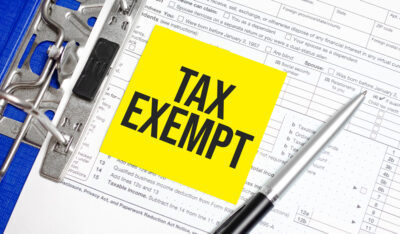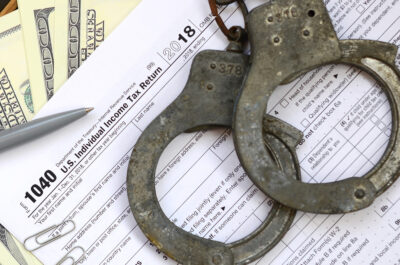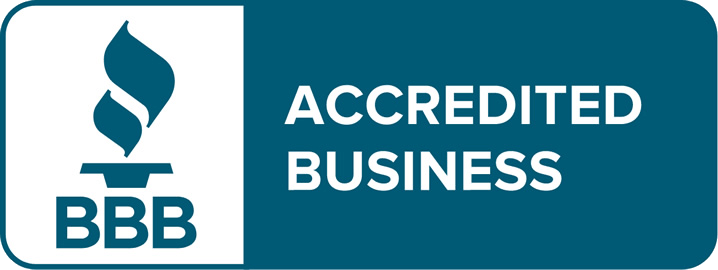Business tax debt is a challenge that many entrepreneurs face at some point when running a business. A business might need business tax debt relief help when a business owes taxes to the government, which can include income taxes, payroll taxes, and sales taxes, among others. This situation can result from various factors such as cash flow issues, mismanagement of finances, tragic extenuating circumstances, or simply a lack of understanding of tax obligations.
The implications of carrying a tax liability can be severe for a business. It can lead to penalties, interest charges, liens on business assets, and even the potential closure of the business. It’s important for business owners to understand their tax liabilities and the legal options available to them for managing or resolving these debts.
One of the key steps in dealing with business tax debt is seeking professional advice. Companies like 20/20 Tax Resolution specialize in helping businesses navigate the complexities of tax debt, providing guidance on how to resolve outstanding liabilities and avoid future tax issues. Understanding the legal options and seeking expert assistance can be the difference between a business thriving or facing seemingly insurmountable challenges.
In the following article, we’ll explore the nuances of business tax debt, the consequences of not addressing it, and the various strategies available to business owners for effectively managing and resolving their tax obligations.
Table of Contents
- Business Tax Debts & Legal Options for Business Owners
- Do Business Owners Always Pay Taxes?
- What Happens If a Business Owner Does Not File Taxes?
- Can the IRS Come After Me Personally for Business Taxes?
- How Far Can the IRS Go Back on Business Taxes?
- What Happens If a Business Can’t Pay Taxes?
- How to Deal With the IRS if Your Small Business Has Tax Debt

Business Tax Debts & Legal Options for Business Owners
Business tax debts can arise from various types of taxes that businesses are required to pay. Some of the common types of business tax debts include:
Income Tax Debt
This is the tax owed on the profits earned by the business. It is calculated based on the business’s net income for the tax year.
Payroll Tax Debt
Businesses with employees are required to withhold payroll taxes from their employees’ wages and pay them to the government. Failure to do so can result in a payroll tax debt. Failure to file federal tax deposits can be part of a payroll tax debt problem.
Sales Tax Debt
Businesses that sell goods or services are typically required to collect sales tax from customers and remit it to the government. If a business fails to collect or remit the correct amount, it can result in a sales tax debt.
Excise Tax Debt
Certain businesses may be subject to excise taxes on specific products or activities. This can include taxes on fuel, tobacco, alcohol, and other goods and services.
When faced with a business tax bill, it’s important for business owners to understand their legal options. Some common strategies for addressing business tax debts include:
Payment Plans
The IRS and many state tax authorities offer payment plans that allow businesses to pay off their tax debts over time. This can provide some relief for businesses struggling with cash flow issues.
Offer in Compromise
In some cases, businesses may be able to settle their tax debts for less than the full amount owed through an Offer in Compromise. This option requires negotiation with the tax authorities and is typically only available in specific circumstances.
Penalty Abatement
If a business can demonstrate reasonable cause for failing to meet its tax obligations, it may be eligible for penalty abatement, which can reduce the overall amount owed.
Bankruptcy
In extreme cases, filing for bankruptcy may be a way to address tax debts. However, this option can have significant long-term consequences for the business and should be considered carefully.

Do Business Owners Always Pay Taxes?
The simple answer is that, in most cases, business owners are required to pay taxes on their income, profits, and other taxable activities. The legal obligations of business owners to pay taxes are established by federal, state, and local tax laws.
These obligations vary depending on the structure of the business, the type of activities it engages in, and its location.
However, there are exceptions and special circumstances that can affect a business owner’s tax obligations:

Tax Deductions and Credits
Business owners can reduce their taxable income by taking advantage of various deductions and credits for which they are eligible. These can include expenses related to business operations, such as equipment purchases, employee salaries, and marketing costs.

Tax Exemptions
Certain types of businesses or business activities may be exempt from specific taxes. For example, nonprofit organizations are generally exempt from federal income tax.

Tax Losses
If a business operates at a loss for a tax year, the owner may not owe any income tax for that year. In some cases, the loss can be carried forward to offset taxable income in future years.

Pass-Through Taxation
For certain business structures, such as sole proprietorships, partnerships, and S corporations, the business itself is not taxed. Instead, the profits and losses are “passed through” to the owners, who report them on their personal tax returns.
Get a free consultation
We Are Committed To Finding SolutionsLearn More
What Happens If a Business Owner Does Not File Taxes?
Failing to file taxes can have significant consequences for a business owner. The penalties and repercussions of non-filing can vary depending on the amount of taxes owed, the length of time the taxes have been unpaid, and other factors.
Penalties and Consequences of Non-Filing

Late Filing Penalties
The IRS imposes penalties for failing to file a tax return by the due date. The penalty is usually 5% of the unpaid taxes for each month or part of a month that a tax return is late, up to a maximum of 25%.

Interest Charges
In addition to penalties, interest accrues on unpaid taxes from the due date of the return until the date the taxes are paid.

Liens and Levies
The IRS may place a lien on a business owner’s property as security for the tax debt. In more severe cases, the IRS may levy assets, meaning they can seize property, bank accounts, or wages to satisfy the tax debt.

Criminal Charges
In extreme cases, failing to file taxes can lead to criminal charges such as tax evasion, which can result in fines and imprisonment.
What to do if you failed to file your business taxes

File as Soon as Possible
If you’ve missed the filing deadline, it’s important to file your tax return as soon as possible to minimize penalties and interest.

Pay Any Taxes Owed
If you owe taxes, try to pay as much as you can when you file. If you can’t pay the full amount, you may be able to set up a payment plan with the IRS.

Seek Professional Help
Navigating the process of resolving unpaid taxes can be complex. Seeking assistance from a tax relief company like 20/20 Tax Resolution can provide guidance and support in dealing with the IRS and finding a resolution.

Stay Compliant Going Forward
Once you’ve addressed your past tax issues, commit to filing and payment compliance in the future by filing and paying your taxes on time.
Not ready to talk to someone?
Let us email you some general information about our process.Learn More
Can the IRS Come After Me Personally for Business Taxes?
One of the concerns many business owners have is whether the IRS can hold them personally liable for business taxes. The answer to this question depends on the structure of the business and the nature of the tax debt.
Understanding Personal Liability for Business Taxes
Sole Proprietorships and Partnerships
In these business structures, the owner or partners are personally liable for all business debts, including taxes. This means that the IRS can pursue personal assets to satisfy business tax debts.
Corporations and Limited Liability Companies (LLCs)
Generally, these business structures provide a level of protection for personal assets. The owners or shareholders are usually not personally liable for business debts, including taxes. However, there are exceptions, such as when the owner has personally guaranteed a debt or if the IRS can prove that the corporate veil should be pierced due to fraudulent activities.
Trust Fund Recovery Penalty
For certain types of taxes, such as payroll taxes, the IRS can hold individuals personally liable for the business’s unpaid taxes through the Trust Fund Recovery Penalty. This can apply to anyone responsible for collecting, accounting for, and paying these taxes, such as officers, directors, or employees.
Protection Measures for Personal Assets
Choose the Right Business Structure
Selecting a business structure that provides limited liability protection, such as an LLC or corporation, can help shield personal assets from business tax debts.
Maintain Corporate Formalities
To ensure the protection provided by your business structure, it’s important to maintain proper corporate formalities, such as keeping separate financial records and holding regular meetings.
Consider Asset Protection Strategies
Consulting with a legal or financial advisor about asset protection strategies can provide additional safeguards for your personal assets.
Speak With a
Licensed Tax
Professional
Learn More

How Far Can the IRS Go Back on Business Taxes?
Understanding the statute of limitations for business tax debts is crucial for business owners. This determines how far back the IRS can go to audit tax returns or collect unpaid taxes.
Statute of Limitations for Business Tax Debts
General Rule:
Typically, the IRS has three years from the date a tax return is filed to audit the return and assess additional taxes. This means that if you filed your return on time, the IRS generally has until three years later to initiate an audit.
Unfiled Returns:
If a business fails to file a tax return, the statute of limitations does not start, and the IRS can potentially go back indefinitely to assess taxes.
Substantial Understatement of Income:
If a business understates its income by 25% or more, the IRS has six years to audit the return and assess additional taxes.
Fraud:
There is no statute of limitations for business tax returns filed fraudulently. The IRS can audit these returns and assess taxes at any time.
Exceptions to the Rule
Extensions:
If a business owner requests an extension to file a tax return, the statute of limitations is also extended. For example, if you receive a six-month extension, the IRS has three and a half years from the extended due date to audit your return.
Waivers:
In some cases, the IRS may ask a business owner to waive the statute of limitations, typically to allow more time for an audit. It’s important to consult with a tax attorney or tax resolution company like 20/20 Tax Resolution before agreeing to waive this right.
State Statutes:
It’s important to note that state tax authorities may have different statutes of limitations for state tax debts. Business owners should be aware of the rules in their state.

What Happens If a Business Can’t Pay Taxes?
When a business finds itself unable to pay its taxes, it’s not the end of the road. There are several options available to help manage and potentially resolve the tax debt. The IRS offers various programs and payment plans designed to assist businesses in this situation.
Options for Businesses Struggling with Tax Debts
1. Short-Term Payment Plan
If a business can pay its tax debt in 120 days or less, it may qualify for a short-term payment plan. This option allows the business to pay off the debt in smaller, manageable amounts without incurring a setup fee.
2. Long-Term Payment Plan (Installment Agreement)
For businesses that need more time to pay, the IRS offers long-term payment plans, also known as installment agreements. These plans allow businesses to make monthly tax payments over an extended period, which can be up to six years for some businesses.
3. Offer in Compromise
In certain circumstances, a business may qualify for an Offer in Compromise, which allows it to settle its tax debt for less than the full amount owed. This option is generally only available if the IRS believes that the full amount cannot be collected within a reasonable period.
4. Currently Not Collectible Status
If a business is experiencing financial hardship and cannot pay its taxes, it may be placed in Currently Not Collectible status. This temporarily halts collection actions, giving the business time to recover financially.
5. Penalty Abatement
If a business can demonstrate reasonable cause for failing to pay its taxes on time, it may qualify for penalty abatement, which can reduce the overall amount owed.
The IRS is generally willing to work with businesses that are upfront about their inability to pay taxes. It’s important to contact the IRS as soon as possible to discuss the available options. Ignoring the problem will only lead to more severe consequences, such as liens and levies.

How to Deal With the IRS if Your Small Business Has Tax Debt
Dealing with the IRS can be daunting for small business owners facing tax debt. However, understanding the process and knowing your options can make the situation more manageable.
Communicating with the IRS
Get Help
Working with a tax professional, like those at 20/20 Tax Resolution, can communicate with the IRS on your behalf and ensure that your rights are protected.
Respond Promptly
If you receive a notice from the IRS, respond by the deadline to avoid additional penalties and interest.
Be Honest and Transparent
Provide accurate information about your financial situation and be upfront about your ability to pay.
Understanding IRS Collection Processes
Notice and Demand for Payment
The IRS will send a notice outlining the amount owed and demanding payment.
Collection Actions
If the debt is not paid, the IRS may take collection actions such as filing a tax lien, issuing a levy, or offsetting refunds.
Appeals
You have the right to appeal certain IRS decisions, including penalties and collection actions.
20/20 Tax Resolution: Business Tax Debt Relief Professionals
Companies like 20/20 Tax Resolution specialize in helping small businesses deal with tax debt. We can assist in setting up payment plans, negotiating settlements, and navigating the complexities of IRS collection processes. Our expertise can provide peace of mind and a path forward for business owners facing tax challenges.
We’re a network of experts and enrolled agents (EA)s that serve individuals and businesses nationwide. 20/20 Tax Resolution has helped over 32,000 businesses and individuals reach successful resolutions with their IRS and state tax liabilities.



